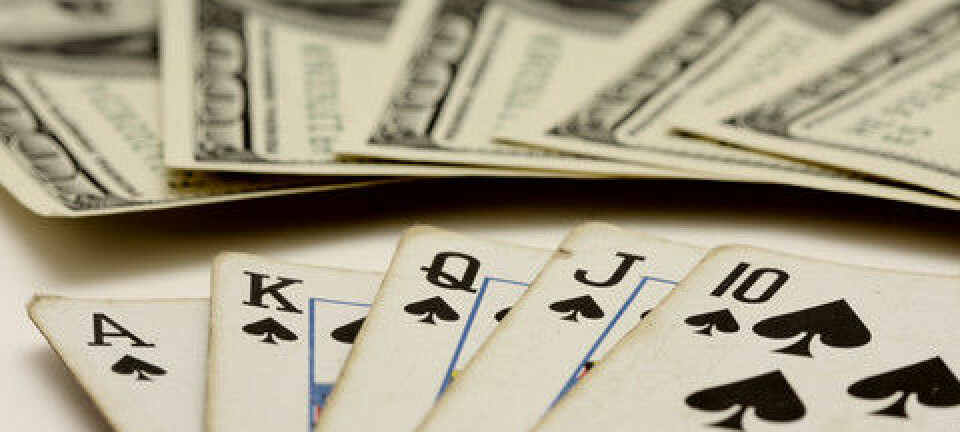
Why compulsive gamblers can’t control themselves
Dopamine makes us more conscious of ourselves which may explain why compulsive gamblers, sex addicts and people with ADHD are more impulsive than others.
We become more conscious of ourselves and who we are when the level of the reward and pleasure hormone dopamine in our system increases. Simultaneously, dopamine activates an area in the brain associated with self-control, a new study shows.
This may help explain why compulsive gamblers, sex addicts and people with ADHD have more difficulty assessing their own choices and guiding themselves, concludes the scientists behind the new study.
“Dopamine usually helps us make the right decisions and exercise self-control. But in compulsive gamblers, and others, dopamine doesn’t have the effect is supposed to have which results in them acting more impulsively and making choices which are not always appropriate,” says Professor Hans Lou from the Centre for Functionally Integrative Neuroscience at the Department of Clinical Meicine at Aarhus University.
He is the lead researcher behind the new study which was recently published in the journal Human Brain Mapping.
Dopamine did not increase
In the study, the team of scientists from Aarhus University and the University of Glasgow gave half the 40 test subjects a placebo tablet, while the other half were given a pill which caused the brain to release more dopamine.
The scientists then asked the test subjects to sit in a MEG brain scanner and tell them which adjectives were true of themselves, and which were true of Denmark’s Queen Margrethe.
Five minutes later, the scientists asked the participants to look at the screen and answer ’yes’ or ’no’ to whether words they had chosen were true of themselves or of Queen Margrethe.
The results showed that on average, the dopamine group made around eight mistakes when it came to remembering the adjectives they had used to describe Queen Margrethe, but only four mistakes when it was they themselves they had to remember.
The group given placebo tablets made an average of eight mistakes in connection with themselves and the Queen.
The dopamine group also showed a higher degree of activity in the paralimbic system, which is a special network of brain cells that is related to the ability of exercising self-control.
“The result is very interesting because it points to a new aspect of the function in the body of the hormone dopamine,” observes Professor Albert Gjedde from the Department of Neuroscience and Pharmacology at the University of Copenhagen.
“We already knew that dopamine generally enhanced our visual awareness. But in this study, the scientists also show that dopamine makes us aware of ourselves. This supports the theory that dopamine also has the purpose of teaching and rewarding us for behaviour beneficial to our survival and reproduction. The hormone exists to promote our wellbeing,” says Gjedde.
Self-control and awareness are linked
The brain scans also revealed that the test subjects who had been given dopamine experienced increased activity in the paralimbic area, which integrates information from other areas of the brain.
“The paralimbic system is one of the areas of the brain which consumes the most energy and it’s therefore extremely important for our conscious awareness. It’s a hub through which the other areas of the brain communicate. This area is crucial when it comes to our awareness and self-control, but also self-consciousness. It appears that dopamine increases activity in this area, thus improving our ability to be aware of how we perceive ourselves,” says Lou.
In several mental illnesses and brain disorders such as dementia, the dopamine function does not work as it should. This is either because too little dopamine is released or because the cells are unable to react as they should to the hormone.
As a result, a lack of self-control or an attention disorder may arise.
This is, for instance, the case with ADHD (attention deficit hyperactivity disorder).
“People with ADHD are more impulsive and have difficulty concentrating. This can be addressed by artificially increasing the person’s dopamine level by, for example, administering Ritalin,” says Gjedde. “So the Aarhus study agrees with what we already know about these mental disorders.”
--------------
Read the original story in Danish on Videnskab.dk
Translated by: Hugh Matthews










